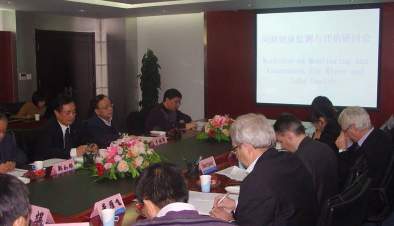Experts and participants from the Department of Water Resources of the Ministry of Water Resources, the Yangtze River Conservancy Commission, the Institute of Water Resources and Hydropower Research, and the EU-China River Basin Management Programme exchanged views and provided recommendations as follows:
1) Set up the legal status and institutional mechanisms of river and lake health assessment.
2) Draw from the European and Japanese experiences to carry out biological background investigations in catchments and rivers to collect basic scientific data and set up an ecological database.
3) Give high attention to investigating the historical status to define the undisturbed natural conditions as a reference point.
4) Establish a pressure-influence model and identify key pressure factors.
5) Conduct a biological investigation and formulate monitoring standards to ensure the correctness of data.
6) Apart from the river continuity, multi-assessment on river and lake connectivity, wandering and habitat diversity should be added.
7) The Ministry of Water Resources should organize cross-disciplinary scientists to develop biological monitoring standards such as the case in which the Netherlands organized 40 interdisciplinary experts and spent three years developing technical standards for biological monitoring.
8) Suggest that the Ministry of Water Resources launches several special programs to support river and lake health assessment as soon as possible.

